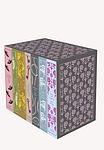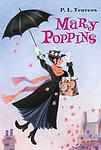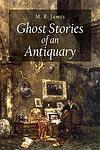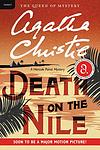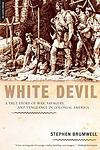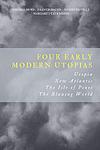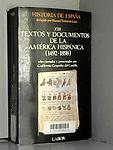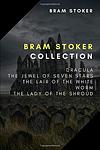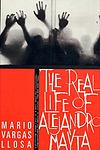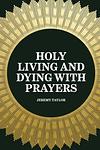The Greatest English, Peruvian Books of All Time
Click to learn how this list is calculated.
This list represents a comprehensive and trusted collection of the greatest books. Developed through a specialized algorithm, it brings together 300 'best of' book lists to form a definitive guide to the world's most acclaimed books. For those interested in how these books are chosen, additional details can be found on the rankings page.
Genres
Countries
Date Range
Reading Statistics
Click the button below to see how many of these books you've read!
Download
If you're interested in downloading this list as a CSV file for use in a spreadsheet application, you can easily do so by clicking the button below. Please note that to ensure a manageable file size and faster download, the CSV will include details for only the first 500 books.
Download-
1. Black Beauty by Anna Sewell
"Black Beauty" is a heartwarming and poignant novel that follows the life of a beautiful black horse named Black Beauty. From his early years as a carefree colt to his later life as a loyal and hardworking carriage horse, Black Beauty encounters various owners and experiences both kindness and cruelty. Through his eyes, readers witness the mistreatment of horses and the importance of compassion and empathy towards animals. This timeless classic serves as a powerful reminder of the enduring bond between humans and animals.
-
2. The War of the End of the World by Mario Vargas Llosa
The book is a historical novel that recounts the War of Canudos, a conflict in late 19th-century Brazil over religious fanaticism, political instability, and social inequality. The story is centered around an apocalyptic movement led by a charismatic, messianic figure who convinces the poor and downtrodden to rise up against the Brazilian government, leading to a brutal and bloody conflict. The book explores themes of faith, power, poverty, and the destructive potential of fervent belief.
-
3. Northanger Abbey by Jane Austen
"Northanger Abbey" is a coming-of-age novel that follows the story of Catherine Morland, a young and naive girl who is invited to stay with the wealthy Tilney family at their estate, Northanger Abbey. Catherine's imagination is fueled by her love for gothic novels, leading her to create fantastical scenarios in her mind. As she navigates the complexities of society and falls in love, Catherine learns valuable lessons about the dangers of letting her imagination run wild and the importance of distinguishing reality from fiction.
-
4. Mary Poppins by PL Travers
In this beloved classic, a magical and enigmatic nanny named Mary Poppins arrives at the Banks' household to care for their mischievous children. With her peculiar and extraordinary abilities, Mary Poppins takes the children on whimsical adventures, teaching them valuable life lessons along the way. As the family learns to appreciate the wonder and joy in everyday life, Mary Poppins proves that even the most ordinary moments can be extraordinary.
-
5. Conversation in the Cathedral by Mario Vargas Llosa
Set in mid-20th century Peru, "Conversation in the Cathedral" is a complex narrative that explores the corruption, decay, and turmoil of the society under the dictatorial rule of Manuel A. Odria. The story mainly revolves around two characters - a wealthy newspaper owner's son and his family's former chauffeur. Their chance meeting leads to a lengthy conversation that unravels the intricate web of political and personal corruption, disillusionment, and lost dreams in their lives and in their country. The novel is a profound examination of the power dynamics, societal decay, and the human condition in a politically oppressive environment.
-
6. The Feast of the Goat: A Novel by Mario Vargas Llosa
"The Feast of the Goat" is a historical novel set in the Dominican Republic during the rule of dictator Rafael Trujillo. It follows the story of Urania Cabral, a successful lawyer returning to her homeland after 30 years of self-imposed exile, and her struggle to confront the traumatic past that led to her departure. The narrative alternates between Urania's personal story and the brutal regime of Trujillo, providing a stark depiction of political tyranny and its effects on individual lives.
-
7. The Time of the Hero by Mario Vargas Llosa
"The Time of the Hero" is a novel set in a military academy in Lima, Peru, where a group of cadets try to maintain their individuality and resist the dehumanizing military routine. The story revolves around a stolen exam paper, the ensuing investigation, and the brutal fallout. The novel explores themes of power, corruption, and the struggle for identity within a rigid and oppressive system, offering a critical look at the military institution and its effects on society.
-
8. Ghost Stories Of An Antiquary by M. R. James
"Ghost Stories of an Antiquary" is a collection of chilling tales that delve into the supernatural and macabre. Written by M. R. James, these stories transport readers to eerie settings, where ancient artifacts, haunted houses, and vengeful spirits lurk. With a masterful blend of suspense and atmospheric descriptions, James weaves narratives that leave readers on the edge of their seats, questioning the boundaries between the real and the supernatural. Each story is a haunting exploration of the human psyche and the terrifying unknown, making this collection a must-read for fans of classic ghost stories.
-
9. Aunt Julia and the Scriptwriter by Mario Vargas Llosa
The novel is a semi-autobiographical tale of a young man in Peru who falls in love with his divorced aunt, Julia, while working at a radio station. Their scandalous romance unfolds amidst the backdrop of a chaotic radio station run by a brilliant but unstable Bolivian scriptwriter who churns out daily soap operas. The narrative alternates between the protagonist's real life and the melodramatic world created by the scriptwriter, blending reality and fiction in a humorous and poignant exploration of love and creativity.
-
10. Troilus And Criseyde by Geoffrey Chaucer
The narrative is a medieval romance that tells the tragic tale of the young Trojan prince Troilus and his doomed love affair with the beautiful Criseyde amidst the backdrop of the Trojan War. After falling deeply in love with Criseyde, Troilus's happiness is short-lived as political circumstances force her to leave Troy and join the Greek camp. Despite her initial vow to remain faithful, Criseyde succumbs to the advances of the Greek warrior Diomedes, leaving Troilus heartbroken and disillusioned. The story explores themes of love, fate, and the capricious nature of fortune, ultimately leading to Troilus's untimely death on the battlefield, as he is unable to reconcile his loss and despair.
-
11. The Arabian Nightmare by Robert Irwin
"The Arabian Nightmare" is a captivating and surreal journey through the dreams and nightmares of a young scholar named Abdulla. Set in medieval Cairo, the book explores the blurred lines between reality and fantasy as Abdulla becomes entangled in a web of magical creatures, mythical beings, and supernatural occurrences. With richly descriptive prose and a deep understanding of Arabian folklore, the story delves into themes of identity, love, and the power of storytelling, leaving readers questioning the nature of dreams and the boundaries of the human imagination.
-
12. Death On The Nile by Agatha Christie
"Death On The Nile" is a thrilling murder mystery set aboard a luxurious Nile river cruise. When a young and beautiful heiress is found dead, renowned detective Hercule Poirot must navigate a web of deceit, jealousy, and hidden motives to uncover the truth behind her untimely demise. As the suspects become increasingly desperate to protect their secrets, Poirot races against time to solve the puzzle before the killer strikes again.
-
13. The White Devil by John Webster
"The White Devil" is a gripping and darkly captivating play that delves into the themes of revenge, corruption, and deceit. Set in 16th century Italy, the story follows the lives of two powerful families, the Brachiano and the Medici, as they engage in a web of treachery and manipulation. As tensions rise and secrets unravel, the characters are consumed by their own desires, leading to a tragic and bloody climax. With its complex characters and intricate plot, "The White Devil" explores the depths of human nature and the destructive consequences of unchecked ambition.
-
14. Broad and Alien is the World by Ciro Alegría
"Broad and Alien is the World" is a novel that explores the harsh realities of life for indigenous people in the Peruvian Andes under the oppressive rule of landowners. The story follows the struggles and ultimate downfall of the Rucas family as they resist the exploitation and abuse from those in power. The narrative is a poignant critique of the social injustices faced by indigenous communities and their fight for survival and dignity.
-
15. Deep Rivers by José María Arguedas
"Deep Rivers" is a novel that follows the life of a young boy who is caught between the Spanish and indigenous cultures of Peru. The protagonist is sent to a Catholic boarding school, where he experiences the harsh realities of social and racial divisions within the country. As he navigates these challenging circumstances, he develops a deep connection with the indigenous Andean culture and its spiritual relationship with nature. The novel is a profound exploration of identity, culture, and the struggle of indigenous peoples in a colonized society.
-
16. A World for Julius by Alfredo Bryce Echenique
"A World for Julius" follows the life of Julius, a young boy from a wealthy, aristocratic family in Peru. The novel is a biting social critique of the Peruvian upper classes, as seen through the eyes of Julius, who is often at odds with his family's values and lifestyle. The narrative explores themes of class, privilege, and the struggle for identity in a world dominated by wealth and social status.
-
17. The Complete Poetry of César Vallejo by César Vallejo
This comprehensive collection showcases the unique and profound poetry of a renowned Peruvian writer, encompassing his entire body of work. The poet's themes often revolve around love, death, and the human condition, reflecting his deeply held political beliefs and personal experiences. His innovative use of language and form revolutionized Latin American poetry, making this collection an essential read for anyone interested in modernist literature.
-
18. Trilce by César Vallejo
"Trilce" is a groundbreaking collection of 77 avant-garde poems that explore the complexities of human existence and emotions. The work is known for its innovative use of language and form, challenging traditional poetic norms. It delves into themes of love, death, and existential angst, while also reflecting on the author's personal experiences, including his struggles with poverty and his political beliefs. The poems are characterized by their intense imagery, complex syntax, and a sense of deep melancholy.
-
19. Spain, Take This Chalice from Me by César Vallejo
"Spain, Take This Chalice from Me" is a poignant collection of poetry that reflects on the Spanish Civil War's brutal impact. The author, deeply moved by the conflict, uses powerful imagery and emotive language to express the heartbreak, despair, and hope experienced by the Spanish people. The poems serve as a profound commentary on war, exploring themes of sacrifice, struggle, and resilience in the face of adversity.
-
20. The Blazing World A New World by Margaret Cavendish
"The Blazing World" is a pioneering work of science fiction and feminist literature that tells the story of a young woman who is kidnapped by a merchant and taken on a voyage to the North Pole, where she enters a parallel universe. In this other world, she becomes the empress of a society inhabited by a variety of hybrid creatures. The empress engages in philosophical discussions with the inhabitants and uses her power to lead a grand intellectual and military campaign back in her own world. The narrative explores themes of power, gender, and the role of science and knowledge, as the protagonist asserts her authority in a world that reflects the author's imaginative and intellectual ambitions.
-
21. The Sheep Look Up by John Brunner
"The Sheep Look Up" is a dystopian science fiction novel that presents a grim and polluted future where environmental degradation and overpopulation have reached catastrophic levels. The story follows various characters as they navigate a world plagued by toxic pollution, food shortages, and rampant disease outbreaks. With a sharp critique of corporate greed and government negligence, the novel explores the consequences of humanity's disregard for the environment and the urgent need for change.
-
22. América Hispánica: (1492-1898) by Guillermo Céspedes del Castillo
"América Hispánica: (1492-1898)" is a comprehensive historical analysis of Hispanic America from the time of Christopher Columbus's first voyage in 1492 to the end of Spanish rule in 1898. The author meticulously details the exploration, conquest, and colonization of the Americas, the establishment of Spanish rule, the socio-economic structures, and the eventual struggles for independence. The book offers a deep understanding of the complex and often turbulent history of Hispanic America during this period.
-
23. The Jewel Of Seven Stars by Bram Stoker
"The Jewel of Seven Stars" is a gripping gothic horror novel that follows the story of a young archaeologist who becomes entangled in a mysterious and ancient curse. When an Egyptian mummy is brought to London, strange occurrences begin to unfold, leading the protagonist on a perilous journey to uncover the secrets of an ancient queen and her quest for immortality. As the suspense builds, the protagonist must confront supernatural forces and make a desperate attempt to break the curse before it consumes them all.
-
24. The Real Life of Alejandro Mayta by Mario Vargas Llosa
This novel revolves around a failed Peruvian revolution and the man who attempted to lead it, Alejandro Mayta. The story is told from the perspective of a novelist who is researching Mayta's life and the events surrounding the failed uprising. The narrative oscillates between the present and the past, unraveling the complex threads of Mayta's personal history, political beliefs, and the broader socio-political context of Peru. The novel explores themes of truth, fiction, and the blurry lines between them.
-
25. Holy Dying by Jeremy Taylor
The book in question is a Christian devotional work that explores the theme of death and the proper attitudes and practices one should adopt in preparation for it. It serves as a guide for the dying and those attending to them, offering theological reflections, moral instruction, and prayers intended to comfort and prepare souls for their final journey. The text emphasizes the transient nature of life, the importance of repentance, and the virtues of a holy life, aiming to provide readers with a sense of peace and a roadmap for achieving a blessed death in accordance with Christian teachings.
Reading Statistics
Click the button below to see how many of these books you've read!
Download
If you're interested in downloading this list as a CSV file for use in a spreadsheet application, you can easily do so by clicking the button below. Please note that to ensure a manageable file size and faster download, the CSV will include details for only the first 500 books.
Download

